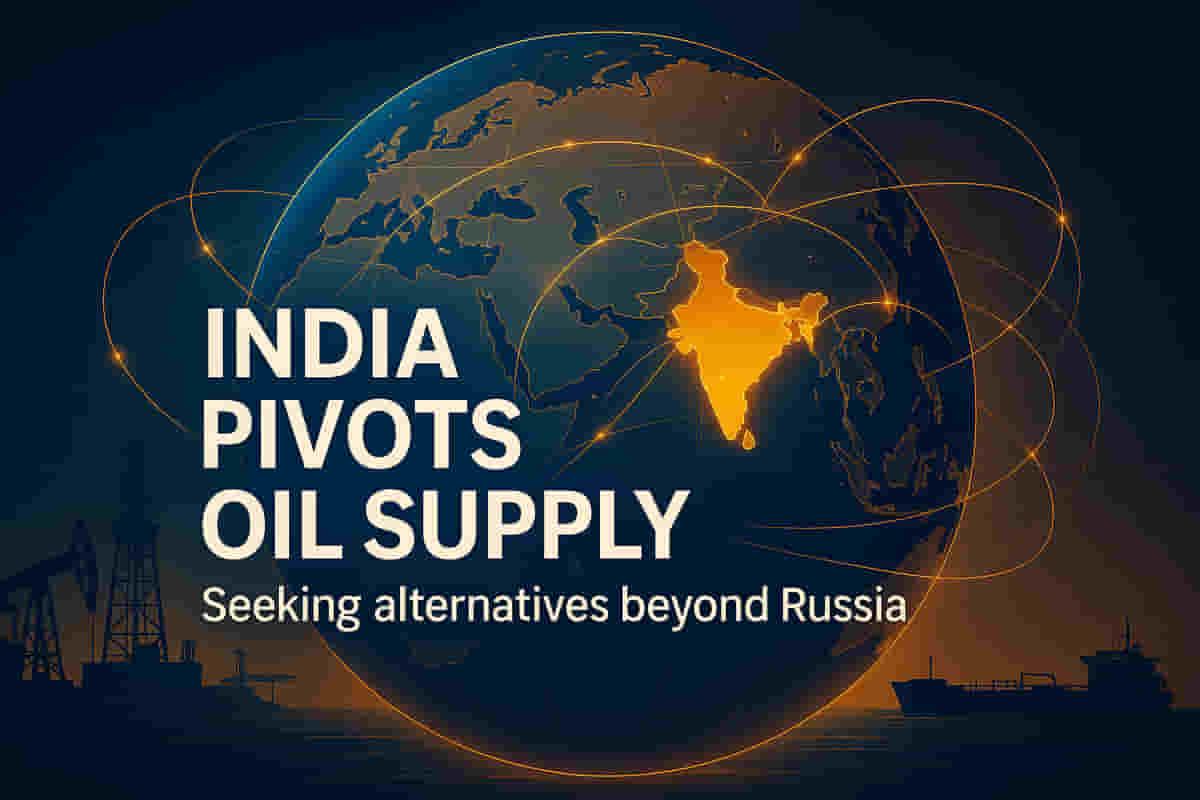Indian Refiners Pivot from Russian Oil Amidst Sanctions, Seek Alternatives from Americas and Abu Dhabi
Energy
|
30th October 2025, 12:41 PM

▶
Stocks Mentioned :
Short Description :
Detailed Coverage :
Indian state-run refiners are significantly altering their crude oil sourcing strategies in response to recent US sanctions imposed on Russia's top oil producers. Indian Oil Corporation (IOC), the country's largest refiner, has invited initial bids for 24 million barrels of crude oil from the Americas for delivery in the first quarter of 2026. This move indicates a proactive effort to secure non-Russian supplies, with the tender covering both low-sulphur and high-sulphur grades. Separately, IOC recently purchased 2 million barrels of West African crude from Exxon Mobil for December delivery. Mangalore Refinery and Petrochemicals Limited (MRPL) has also taken steps to replace Russian oil, having bought 2 million barrels of Abu Dhabi Murban crude via a tender, intending to tap spot markets monthly and seek additional term supplies. HPCL-Mittal Energy Ltd has also announced it has stopped buying Russian oil. Reliance Industries Limited, a major importer of Russian crude, is also pivoting, having acquired substantial volumes from the Middle East, the US, and Brazil to substitute its Russian supply. The company stated it will adhere to Western sanctions while maintaining existing supplier relationships.
Impact: This strategic shift by Indian refiners to avoid sanction risks will likely lead to increased procurement costs as they turn to the spot market or regions with potentially higher prices. It also necessitates complex adjustments in their supply chain logistics and could influence refining margins if global crude prices experience upward pressure due to this demand redistribution. However, it also mitigates geopolitical risks associated with Russian oil. Rating: 7/10
Difficult Terms: Spot Market: A market where financial instruments or commodities are traded for immediate delivery and payment, as opposed to futures contracts which are for future delivery. Crude Oil Grades: Refers to different types of crude oil distinguished by their density (API gravity) and sulphur content. Low-sulphur crude (sweet) is generally preferred as it is easier to refine into fuels like gasoline and diesel with lower emissions. High-sulphur crude (sour) requires more complex refining processes. Cargoes: A shipment of goods, typically referring to bulk commodities like oil transported by sea. Term Suppliers: Suppliers with whom a buyer has a long-term contract for regular delivery of a commodity. Sanction Risks: The potential penalties or negative consequences that a company or country might face for violating economic or political sanctions imposed by other nations or international bodies. Refining Complex: An integrated facility where crude oil is processed into various refined petroleum products such as gasoline, diesel, jet fuel, and petrochemicals.